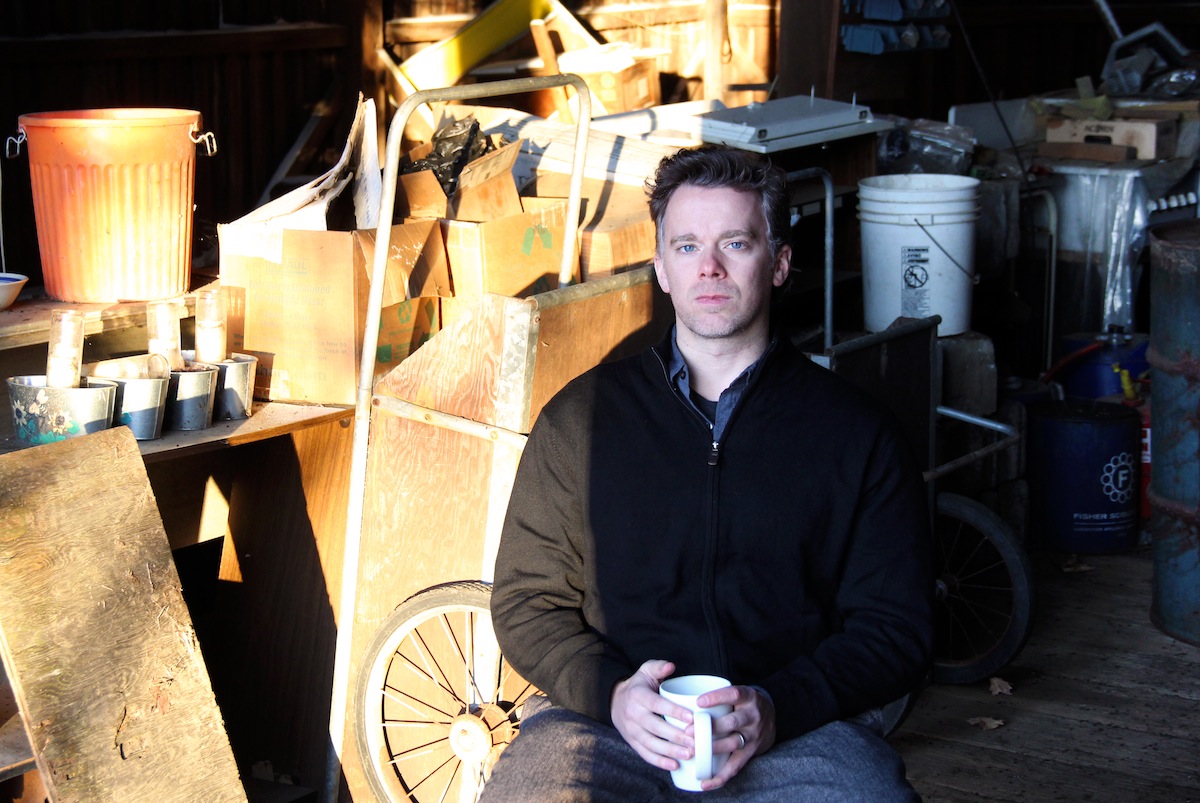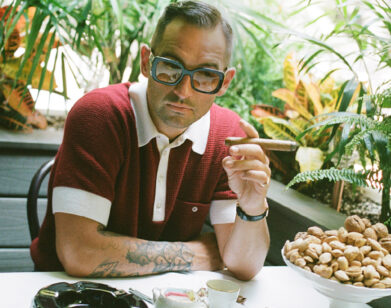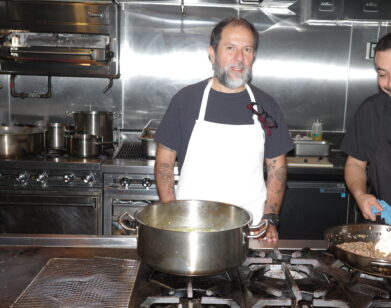James Scott’s Violent Landscape

ABOVE: JAMES SCOTT. PHOTO COURTESY OF TAYLOR SCOTT
James Scott’s debut novel The Kept (Harper Collins) is a vivid, violent, beautiful book. Set in 1897 and starting in a bleak, snowy landscape, Elspeth, a midwife, is returning to her family after months spent working away from their isolated farm. But when she gets home, she finds her husband and children brutally murdered. Only her 12-year-old son Caleb has survived the massacre, and together they set out on a quest for revenge. Yet, this is not a random act of violence. The men who murdered her family have their own sinister motives, and Elspeth herself harbors dark secrets. At turns tender and harsh, twisted and lyrical, Scott has written a gripping coming-of-age tale. He explores the bonds of family, love, compulsion, and deception in a time before technology. Filled with small towns and vast woods, crooked people as well as triumphant acts of courage, Scott has created not only a compelling narrative but a lovely, lonely landscape. We spoke with Scott about secrets ruling our lives, guilt, the toll revenge takes, how isolation can shape a life, and why inside his head is a dangerous place to be.
ROYAL YOUNG: What happens when secrets take over our lives?
JAMES SCOTT: Secrets can be poisonous. Especially in my book, the characters tell themselves they’re keeping secrets for more generous reasons. Elspeth, the main character, tells herself she is keeping secrets for the sake of her family. Which I think is a really common self-delusion. But then the guilt of it has been eating her up for a long time. I’m a really anxious person, so I tend not to keep secrets. I tend not to even want to hear them. It’s too nerve-wracking for me to try and keep things from people. [laughs]
YOUNG: Do you think the sense of anxiety Elspeth has ends up ruling her?
SCOTT: Yes, to a certain extent. I think the guilt over what she’s done dictates her actions. But her particular issue, without giving too much away, is a compulsion. It’s an addiction. That kind of thing can override guilt, fear, and embarrassment. She almost tries to hold on to the guilt and make that one of the engines that drives her.
YOUNG: The guilt becomes a weird way of protecting herself and her remaining family.
SCOTT: Yes, and the self-punishment is very common for people too. They’d rather punish themselves than let their secret out. Somehow they think this is paying the proper penance.
YOUNG: Even if it’s an internal one.
SCOTT: Exactly. Keeping those kind of secrets can be self-flagellating, like it’s almost okay if you feel horrible about it.
YOUNG: [laughs] Totally.
SCOTT: [laughs] If I keep this secret, I am bad enough to myself.
YOUNG: Right, you make yourself judge, jury, and executioner before anyone else has a chance to. And the sad thing is that often when you expose your secrets and become more honest with yourself, you find the reaction from the outside world is more complicated than the intense guilt you yourself have inflicted.
SCOTT: Absolutely. Especially because secrets are inherently selfish. The longer you keep them, the harder it is to put yourself in other people’s shoes about them and the more irrational your thinking surrounding it becomes. You’re right, when it comes out for one reason or another, the reaction is never what you expected it to be. Secrets are also always never as well kept as people think they are. More often than not when you reveal something, especially the bigger it is, people always had some inkling, or they’re like, “Well, yeah, of course.”
YOUNG: What happens when revenge becomes our reason for living?
SCOTT: It’s blinding. Revenge is a really narrow scope through which to view things. In the same way secrets do, it has this ability to warp everything. But secrets are more inward, and revenge is outward.
YOUNG: Is it easier to pursue revenge when you’re younger?
SCOTT: I think it depends most upon your ability to empathize. No matter how old you are, if you’re just not an empathetic person, it’s a lot easier to concentrate solely on something that is injuring another person to even some score. Hopefully as people grow older, their ability to empathize deepens.
YOUNG: Unfortunately, I don’t think that’s always the case.
SCOTT: That’s true. The goal should obviously be as your life goes on you should gain a deeper understanding of the world and the people moving through it; but that might be asking too much.
YOUNG: What drew you to writing about this specific time period?
SCOTT: I wanted the book to take place in a time before the world sped up. Before the dissemination of information, the way we could travel, speak to one another, communicate, before all that got so fast. The book is set in 1897, and it’s right on the cusp of that. Even a few years later, this story wouldn’t happen because news of it would get out. The kind of isolation that Elspeth’s family lives in is still possible, I guess, but it’s gotten more and more difficult.
YOUNG: Do you think the isolation reinforces or helps secrets or revenge?
SCOTT: Yeah, and I think it goes back to the empathy thing, the more people you run into, the greater your exposure, the easier it is to understand and empathize with other people. So if you are living in a much smaller ecosystem, it’s probably easier to have simpler feelings.
YOUNG: Yes, and as the characters go out and experience a larger world they have never known before, what started out as a simple vision of life becomes more and more complicated.
SCOTT: That was one of things that was most fun for me to write. Most of the characters are keeping secrets. I had to figure out the bubble that each character lived in, what they knew, what they didn’t know, what they expected from life.
YOUNG: Have you ever had a similar experience to your characters?
SCOTT: I’m a really anxious and nervous person in a lot of ways. I get anxiety over new places and things, and I’m sure I brought a lot of that to the character of Caleb.
YOUNG: Is the anxiety still a thing for you?
SCOTT: Yeah, definitely.
YOUNG: You don’t feel like in the writing of such a bloody, dramatic book you were able to let go of some of it?
SCOTT: No, I don’t think so. [laughs] It’s sort of a fucked-up thing, because the act of writing keeps you in your own head. And not to be melodramatic, but for me, one of the most dangerous places to be is in my own head. One of my salves is to keep doing things, stay active.
YOUNG: Well I think you owe yourself a vacation to some very terrifyingly exotic place. [laughs]
SCOTT: [laughs] The thought of that makes me so nervous! But my wife is great at keeping calm when I’m not. We’re definitely going to try and get away some place and enjoy it.
THE KEPT IS OUT TODAY.






